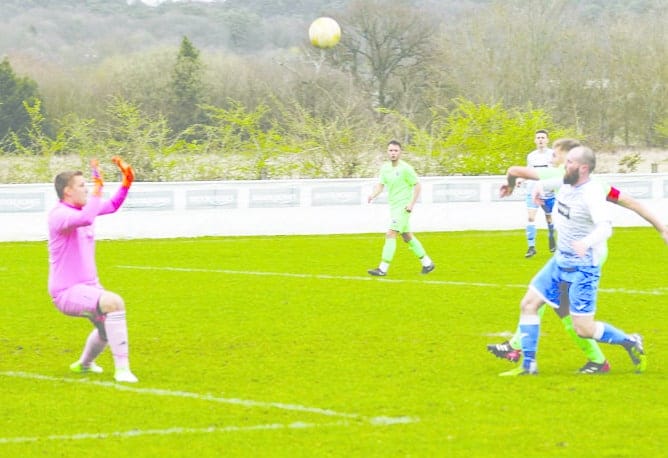Football supporters often complain to me about the time goalkeepers take to release the ball, once it is in their hands.
I’ve even had a couple of emails from supporters outside the Thames Valley. One, after watching Bridlington play, asked if the law had changed.
The other actually timed the goalkeepers at his local club. It was, he said, seldom less than 20 seconds whereas he thought it was to be no longer than six seconds.
The answer of course, is that there has not been a change. The law still says, ‘an indirect free kick is awarded if the goalkeeper controls the ball with the hand or arm for more than six seconds, without releasing it’.
The question here of course, is when do the laws deem the goalkeeper has control of the ball. The answer is quite long and complicated.
It’s when the ball is between the hands or between the hand and any surface (e.g. the ground or body), or is touching it with any part of the hands or arms, or if the goalkeeper is holding the ball in an outstretched open hand. or bouncing it on the ground or throwing it in the air.
Another reason this is spelt out so diligently, is because a goalkeeper cannot be challenged for the ball, when in control with the hand. nor can players prevent them from releasing it.
Goalkeepers often throw themselves on the ground once they have caught the ball. They feel this gives them a few free seconds to hold on the ball. However, as we can see, that is part of the six seconds.
That doesn’t help us when considering why goalkeepers are allowed to take so long before releasing it.
It is of course difficult for referees to judge the timing accurately. They can’t stand there looking at their watch, when there are so many other things going on.
They could of course be counting to themselves ‘one elephant, two elephant’ etc, the law was intended to help speed up the game, but like many other similar changes, the footballing authorities don’t seem to fret too much, and in some cases, referees are actually told not to bother.
Let’s face it, supporters only get hot under the collar when it is the opposing goalkeeper wasting time, and for the referee it can cause a lot of anguish.
I remember a Women’s World Cup Final, America v Canada, when the woman referee gave a free kick to Canada after the American goalkeeper held on to the ball too long.
She was surrounded and pilloried by American players and officials, especially after the player taking the free kick passed it to a teammate who scored, resulting in the trophy going to Canada.
She should have warned the goalkeeper, they cried, but that’s not in the law, although some referees might give a little ‘get on with it’ wave.
By Dick Sawdon Smith
























